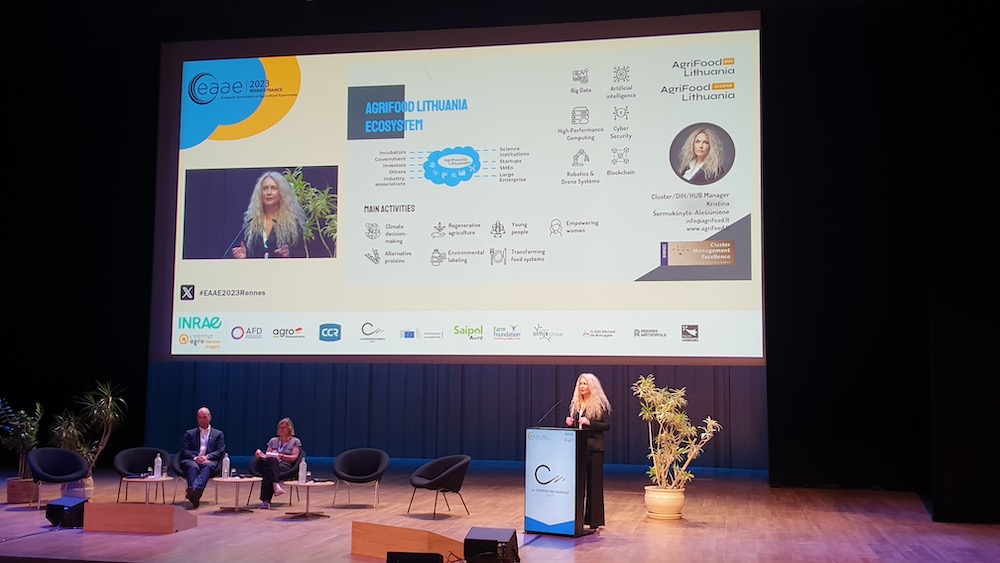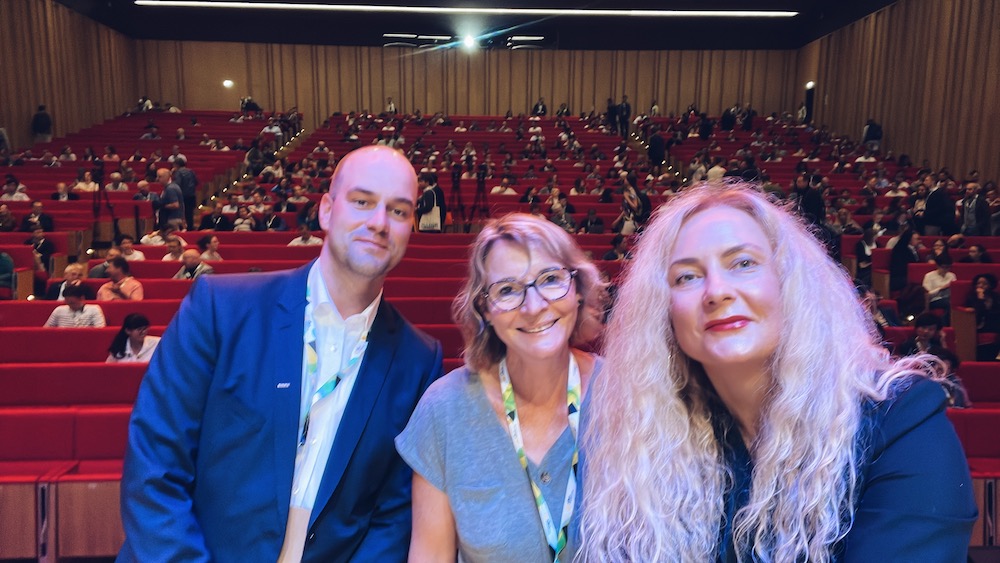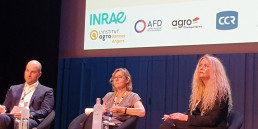The XVII Congress of the European Association of Agricultural Economists addressed digital innovation and the Green Deal
Climate change has a direct impact on the agri-food sector. The challenges it poses were discussed at the XVII Congress of the European Association of Agricultural Economists (EAAE) in Rennes, France, last week, from August 31 to September 1.
The main topic of the conference, “Agri-food systems in a changing world: Connecting science and society”, reflects the aim of finding solutions to transform agri-food systems into more sustainable, resilient, and planet-efficient ones, combining scientific and innovative progress.
Famous professors and leaders of international organisations from the United States, Switzerland, Germany, Switzerland, France, the Netherlands, and Germany shared their insights: Marion Jansen, Director of the Trade and Agriculture Directorate of the OECD, Robert Finger, Professor of Agricultural Economics and Policy at ETH Zurich, Thomas Heckelei, Professor of Economic and Agricultural Policy at the University of Bonn, Thomas Jayne, Professor of Agricultural, Food, and Resource Economics at the University of Michigan State, David Just, Professor and Director in Science and Business in the Charles H. Dyson School of Applied Economics and Management at Cornell University, Miranda Meuwissen, Professor of Risk Management and Resilience in Food Supply Chains at the Business Economics Group, University of Wageningen, Professor of Risk Management and Resilience in Food Supply Chains at the Business Economics Group at Wageningen University, and Jutta Roosen, Professor of Marketing and Consumer Research at the Technical University of Munich.
Kristina Šermukšnytė-Alešiūnienė, CEO of the Cluster and Digital Innovation Hub “AgriFood Lithuania DIH”, was the only business representative who gave one of the keynote speeches at this annual high-level congress.

In the panel discussion “Digital Innovations for Sustainable and Resilient Agricultural Systems”, Kristina, from the perspective of the European Cluster Leader of the Year and a long-standing expert in the agri-food sector, delved deeper into the region’s digital innovation and greening situation, challenges, opportunities, good practices, and other related aspects in her speech “The Digitization and Greening of the European Agri-food Industry”.
The main points expressed include:
- Digitalisation improves business processes by reducing costs, increasing productivity, reducing risks, increasing traceability, and promoting sustainability.
- Innovation through E-SIC by offering technical expertise and experimentation (i.e. testing before investing) reduces the risks of adopting new technologies and helps to discover the right ones. Take the opportunity to become a member of EDIHLT and receive a free digital maturity assessment.
- Clusters integrate business, research, society, and the public sector to increase and create shared value and are one of the key tools in the double transformation.
- Innovation in the food value chain needs to foster cross-sectoral cooperation that contributes to a sustainable digital economy in the EU.
- The focus must be on making rural areas and communities stronger, more connected, and more resilient to potential crises. The European Startup Village Alliance provides the tools to achieve this goal.
- Ultimately, only determined action to build an ecosystem based on start-ups and innovation in the agri-food sector will bring lasting change.
The panel discussion was held with Robert Finger, Professor of Agricultural Economics and Policy at ETH Zurich. It was moderated by Prof. Sophie Thoyer from the National Research Institute for Agriculture, Food and Environment (INRAE).



